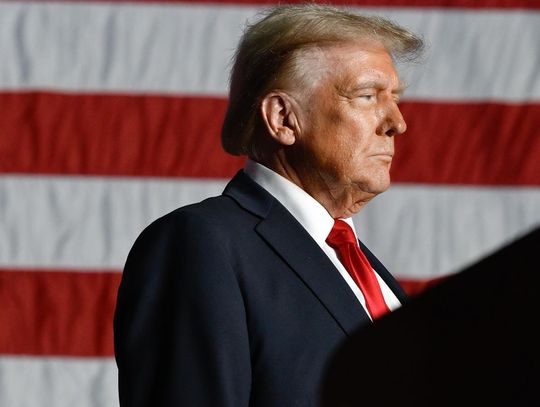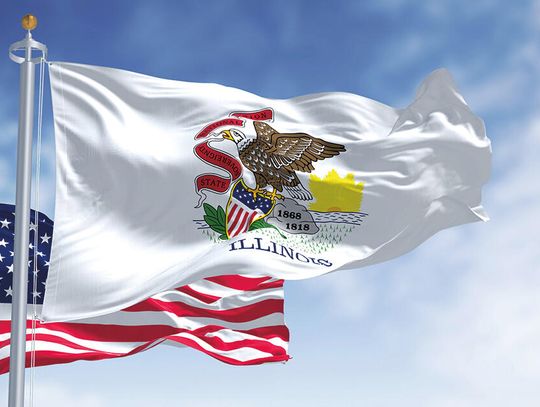The Warsaw Institute Foundation to pierwszy polski geopolityczny think tank w Stanach Zjednoczonych. Strategicznym celem tej organizacji jest wzmocnienie polskich interesów w USA przy jednoczesnym wspieraniu unikalnego sojuszu między dwoma narodami. Jej działalność koncentruje się na takich zagadnieniach jak geopolityka, porządek międzynarodowy, polityka historyczna, energetyka i bezpieczeństwo militarne. The Warsaw Institute Foundation została założona w 2018 roku i jest niezależną organizacją non-profit, inspirowaną bliźniaczą organizacją działającą w Polsce – Warsaw Institute. The Warsaw Institute Foundation is Poland's first geopolitical think tank in the United States. The strategic goal of this organisation is to bolster Polish interests in the U.S. while supporting the unique alliance between the two nations. Its activity focuses on such issues as geopolitics, international order, historical policy, energy, and military security. Established in 2018, The Warsaw Institute Foundation is an independent, non-profit organization inspired the twin Poland-based Warsaw Institute.
Dolar – jedna z najpotężniejszych walut świata. Obecna w handlu międzynarodowym nawet tam, gdzie Stany Zjednoczone nie są stroną, służąca do rozliczania transakcji na rynku ropy naftowej, silny instrument polityki zagranicznej. USA zdają sobie z tego sprawę, wykorzystując dominującą pozycję swojej waluty do budowy gospodarczej potęgi i do walki w globalnej grze wpływów.
W 1944 roku w Bretton Woods w USA delegaci państw alianckich zdecydowali o utworzeniu międzynarodowego systemu walutowego opartego na utrzymywaniu stałych kursów wymiany walut na USD, który z kolei był wymienialny na złoto na żądanie. Dzięki tym decyzjom światowa pozycja dolara znacząco urosła. Po zniesieniu przez Nixona parytetu złota w 1971 roku, dolar stał się pieniądzem fiducjarnym – jego wartość ustalana była odtąd przez bank centralny w oparciu o kurs wymiany.
Aby nie stracić dominującej pozycji dolara, Stany Zjednoczone zdecydowały się na zawarcie porozumienia z Arabią Saudyjską w celu ujednolicenia cen ropy. Odtąd wszelkie transakcje sprzedaży ropy naftowej miały być dokonywane w dolarach. Tak narodził się system petrodolarów, który wygenerował sztuczny popyt na amerykańską walutę na całym świecie.
Narzędzie władzy
W efekcie dolar ma obecnie pozycję dominującej światowej waluty rezerwowej, z której korzysta wiele zagranicznych rządów. System petrodolarów zapewnił USA także inną, niemniej istotną przewagę – Stany Zjednoczone mogły odtąd utrzymywać stały deficyt w bilansie wymiany handlowej, zaciągając długi u zagranicznych podmiotów. W rezultacie są jedną z największych i najprężniej rozwijających się gospodarek świata, będąc jednocześnie najbardziej zadłużoną (23 biliony USD w 2019). Dzięki silnemu i stabilnemu dolarowi niektóre kraje także chętnie decydują się na USD jako swoją oficjalną walutę, co określa się mianem dolaryzacji (ang. dollarization).
Dominująca pozycja dolara to potężny instrument polityki zagranicznej, dający możliwość egzekucji przestrzegania sankcji gospodarczych wobec amerykańskich oponentów. Zarówno rodzime, jak i zagraniczne podmioty niechętnie robią interesy z adresatami sankcji ze względu na możliwe kary. BNP Paribas został na przykład skazany na 9 mld dolarów grzywny za naruszenie sankcji wobec Iranu, Kuby i Sudanu. Za podobne naruszenia inne podmioty (np. HSBC Holdings Plc, Standard Chartered Plc, Commerzbank AG, United Co. Rusal i Clearstream Banking SA) również musiały zapłacić wysokie grzywny. Jaskrawym przykładem był też spór z Iranem, gdy USA nałożyły sankcje na irańską gospodarkę, grożąc jednocześnie karami wszystkim, którzy kontynuowaliby handel z tym państwem w dolarach. Ta decyzja miała negatywny wpływ na partnerów handlowych Iranu, a więc przede wszystkim Chiny, Turcję, Koreę Płd., Indie i Niemcy.
Wpływ polityki zagranicznej na kurs dolara
Siłę zapewnia dolarowi system petrodolarów, jak również wykorzystywanie głównie tej waluty do transakcji w międzynarodowym handlu. Słabsza i niepewna sytuacja gospodarcza konkurentów spowodowana sankcjami (np. Iran, Rosja) powoduje odpływ pieniędzy do bezpiecznej amerykańskiej przystani. Widać to szczególnie w ostatnim czasie, gdy światowy lockdown i problemy innych gospodarek, spotęgowane dodatkowo wojną cenową na rynku paliw, pchnęły inwestorów w objęcia USD, powodując jego silne wzrosty. Na kurs amerykańskiej waluty ma też wpływ popularność osoby prezydenta USA. Gdy tzw. POTUS (ang. President of the United States) postrzegany jest jako silny organ wykonawczy, czego nie można odmówić Donaldowi Trumpowi, zachęca to inwestorów do lokowania środków w dolarze.
Trudno natomiast ocenić wpływ wojny handlowej między USA i Chinami. Kurs dolara w tym względzie będzie zależeć od wyników gospodarczych USA w skali globalnej (które do tej pory były solidne), działań Rezerwy Federalnej oraz polityki pieniężnej banków centralnych na całym świecie. Pewnym jest natomiast, że główni partnerzy handlowi USA - Chiny i Japonia – posiadający znaczną część długu amerykańskiego nie pozwolą na ostrą dewaluację dolara, która skutkowałaby utratą wartości ich własnych rezerw.
Czy czeka nas koniec dominacji dolara?
Mimo że rozwijający się sektor energetyczny coraz istotniej wpływa na wzrost PKB USA, duża różnorodność gospodarcza Ameryki zmniejsza zależność od tej branży. Poprzez dywersyfikację władze starają się zabezpieczyć przed możliwymi skutkami utraty dominującej pozycji dolara. A ta wydaje się coraz bardziej prawdopodobna. W ubiegłym roku Arabia Saudyjska zagroziła porzuceniem petrodolarów, jeśli Stany Zjednoczone będą kontynuować próby podporządkowania sobie państw OPEC poprzez forsowanie propozycji ustawy „No Oil Producing and Exporting Cartels Act”, która uzależniałaby działania krajów członkowskich kartelu od wymiaru sprawiedliwości USA. Z kolei Iran i Wenezuela podpisały kontrakty naftowe w swoich własnych walutach zamiast dolarów. W ostatnich latach Chiny wprowadziły kontrakty terminowe na ropę denominowane w juanach, natomiast Rosja zawarła szereg umów handlowych z Chinami i Iranem, które całkowicie pomijają USD. Europa także przejawia dążenia do alternatywnego systemu waluty rezerwowej, co w przyszłości może spowodować zastąpienie dolara przez euro, które jest jego głównym konkurentem. Mniejsze zużycie paliw kopalnych w wyniku postępującego, szczególnie w Europie, przejścia na źródła odnawialne może zmniejszyć zapotrzebowanie na dolara, choć zapewne nie spowoduje jego istotnej dewaluacji, póki świat nie znajdzie należytego substytutu.
Utrata dominującej pozycji przez dolara z pewnością znalazłaby odzwierciedlenie w spadku wpływów geopolitycznych i gospodarczych Stanów Zjednoczonych. Jednocześnie zmusiłaby USA do ograniczenia wydatków, a dodatkowo mogłaby uderzyć w do tej pory prężnie rozwijającą się amerykańską gospodarkę. Wygląda na to, że Amerykanie jednak muszą być na taki scenariusz przygotowani w czasach, gdy globalny układ sił staje się wielobiegunowy, a pozycja dolara, choć silna, nie jest już tak „nietykalna” jak kiedyś.
**
Jakub Łyjak
ukończył prawo na Uniwersytecie im. Adama Mickiewicza w Poznaniu oraz ekonomię na Uniwersytecie Ekonomicznym w Poznaniu. Studiował również Business Administration (Betriebswirtschaftslehre) na Westfälische Wilhelms-Universität w Münster. Doświadczenie zawodowe zdobywał w branży prawnej oraz organizacjach pozarządowych, m.in. Polish Entrepreneurship and Leadership Association oraz Center for American Studies.
The Warsaw Institute Foundation to pierwszy polski geopolityczny think tank w Stanach Zjednoczonych. Strategicznym celem tej organizacji jest wzmocnienie polskich interesów w USA przy jednoczesnym wspieraniu unikalnego sojuszu między dwoma narodami. Jej działalność koncentruje się na takich zagadnieniach jak geopolityka, porządek międzynarodowy, polityka historyczna, energetyka i bezpieczeństwo militarne. The Warsaw Institute Foundation została założona w 2018 roku i jest niezależną organizacją non-profit, inspirowaną bliźniaczą organizacją działającą w Polsce – Warsaw Institute. The Warsaw Institute Foundation is Poland's first geopolitical think tank in the United States. The strategic goal of this organisation is to bolster Polish interests in the U.S. while supporting the unique alliance between the two nations. Its activity focuses on such issues as geopolitics, international order, historical policy, energy, and military security. Established in 2018, The Warsaw Institute Foundation is an independent, non-profit organization inspired the twin Poland-based Warsaw Institute.
The Warsaw Institute Foundation to pierwszy polski geopolityczny think tank w Stanach Zjednoczonych. Strategicznym celem tej organizacji jest wzmocnienie polskich interesów w USA przy jednoczesnym wspieraniu unikalnego sojuszu między dwoma narodami. Jej działalność koncentruje się na takich zagadnieniach jak geopolityka, porządek międzynarodowy, polityka historyczna, energetyka i bezpieczeństwo militarne. The Warsaw Institute Foundation została założona w 2018 roku i jest niezależną organizacją non-profit, inspirowaną bliźniaczą organizacją działającą w Polsce – Warsaw Institute. The Warsaw Institute Foundation is Poland's first geopolitical think tank in the United States. The strategic goal of this organisation is to bolster Polish interests in the U.S. while supporting the unique alliance between the two nations. Its activity focuses on such issues as geopolitics, international order, historical policy, energy, and military security. Established in 2018, The Warsaw Institute Foundation is an independent, non-profit organization inspired the twin Poland-based Warsaw Institute.
Reklama










